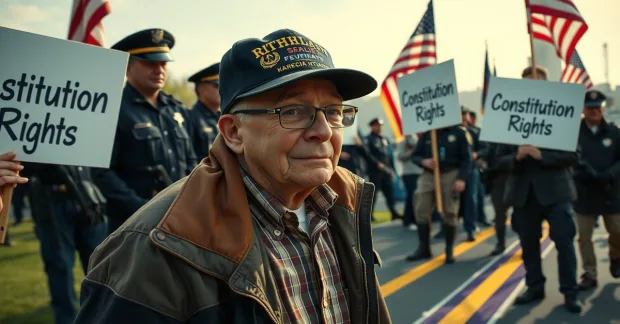
You may think that professional gamers only have to worry about perfecting their skills and staying on top of their game, but the world of esports has its own legal framework that players must navigate. In this blog post, we will explore the importance of understanding contracts, sponsorship deals, intellectual property laws, and labour rights in the fast-growing industry of esports. From player contracts to copyright infringement in game streaming, pro gamers need to be aware of their legal rights and responsibilities to protect themselves in this dynamic and competitive environment.
Key Takeaways:
- Player Contracts: Pro gamers should carefully review and understand their contracts, including terms related to sponsorship, revenue sharing, and exclusivity.
- Intellectual Property: Understanding rights to intellectual property is crucial for pro gamers, including licensing deals, trademarks, and ownership of gaming content.
- Image Rights: Pro gamers should be aware of how their image and likeness are used in marketing, streaming, and other commercial activities.
- Regulations: Esports is subject to various regulations, including gambling laws, anti-doping policies, and age restrictions that pro gamers must comply with.
- Dispute Resolution: Pro gamers should know their options for resolving disputes, including arbitration, mediation, and litigation, to protect their rights and interests.
- Data Privacy: Pro gamers should take steps to protect their personal data and ensure compliance with privacy laws, especially when participating in international competitions.
- Taxation: Pro gamers need to be aware of tax implications, including income tax, sponsorship earnings, and potential deductions, to avoid legal issues with tax authorities.

The Rise of Professional Gaming
Even as video games were once seen as a mere pastime, the rise of professional gaming has transformed the perception of this form of entertainment. With the growth of competitive gaming, also known as esports, talented gamers are now able to compete on a global stage, earning substantial incomes through sponsorships, prize winnings, and endorsements.
Historical Context and Evolution
One cannot discuss the rise of professional gaming without acknowledging its humble beginnings. Competitive gaming dates back to the early 1970s with games like Pong and Space Invaders drawing crowds to arcade tournaments. As technology advanced, so did the complexity of games, leading to the rise of titles like StarCraft, Counter-Strike, and League of Legends, which are now staples in the esports industry.
Economic Impact and Esports Industry Growth
On the economic front, the esports industry has experienced exponential growth in recent years. With a global audience of over 450 million viewers and revenues surpassing $1 billion, the industry has attracted massive investments from corporations, media outlets, and venture capitalists. This rapid expansion has created lucrative opportunities for players, teams, and event organizers, but has also raised concerns regarding player rights, labor conditions, and fair competition.
Legal Issues in Esports
Intellectual Property Rights
Many legal issues in the world of esports revolve around intellectual property rights. As esports grows in popularity, so do questions about who owns the rights to gameplay, team logos, and player likenesses. These issues can become complex when players switch teams or when sponsors become involved.
Contract Law in Esports
Esports contract law is another critical aspect of the legal landscape in professional gaming. Contracts between players, teams, and sponsors must outline expectations regarding player responsibilities, compensation, tournament participation, and more. Ensuring that all parties clearly understand and agree to the terms of these contracts is imperative to prevent disputes and protect the rights of everyone involved.
Contract law governs the relationships between players and organizations, setting the stage for how players are compensated, what happens in the event of a breach of contract, and more. Having well-drafted contracts in place can safeguard the interests of both players and organizations in the fast-paced world of esports.
Player Representation and Management
Agency and Representation for Pro Gamers
Keep in mind that navigating the world of professional gaming can be complex, and pro players often require skilled agents or representatives to guide them through contracts, negotiations, and other legal matters. An experienced agent can help pro gamers secure the best deals with teams, sponsors, and tournament organizers, ensuring their rights and interests are protected. It’s important for pro gamers to find representation that understands the industry and can advocate effectively on their behalf.
The Dynamics of Team Management
Gamers must also be aware of the unique dynamics of team management within the esports industry. While joining a team can offer opportunities for growth and collaboration, it also comes with responsibilities and potential challenges. Team managers play a crucial role in overseeing player development, performance, and well-being, as well as managing team dynamics and relationships. Pro gamers should seek teams that provide a supportive and professional environment to help them thrive in their careers.
Representation in the esports industry can be a game-changer for pro gamers, as it offers them legal and professional support that can make a significant difference in their careers. Having a skilled representative negotiating on their behalf can help pro gamers secure lucrative deals, protect their rights, and ensure fair treatment in a rapidly evolving and competitive industry. Pro players should carefully choose their representatives to ensure they have the expertise and dedication needed to navigate the legal complexities of the esports world.
Employment Law and Player Welfare
Working Conditions and Labor Issues
To ensure fair treatment of professional gamers, it is crucial to establish clear working conditions and address any labor issues that may arise in the rapidly evolving world of esports. Not all organizations provide adequate contracts or support to players, leading to disputes over compensation, working hours, and player rights. It is crucial for players to seek legal guidance and negotiate favorable terms to protect their interests.
Health, Safety, and Fair Play
To maintain a sustainable career in esports, player health, safety, and fair play must be prioritized. Fair competition relies on ethical gaming practices and adherence to tournament rules and regulations. It is imperative for players to be aware of the risks associated with excessive gaming, such as physical strain, mental exhaustion, and burnout.
Conditions in esports can be intense, with players often facing immense pressure to perform at their best while maintaining a grueling practice schedule. Organizations should implement wellness programs, provide access to mental health resources, and prioritize fair competition to ensure the long-term success and well-being of professional gamers.
Regulation of Esports Competitions
To ensure fair play, integrity, and professionalism in esports, regulation of esports competitions is imperative. Regulation encompasses a wide range of aspects, from player behavior to anti-corruption measures, and is overseen by various governing bodies and organizations in the esports industry.
The Role of Governing Bodies
Bodies such as the Esports Integrity Commission (ESIC), the World Esports Association (WESA), and game publishers like Riot Games play a crucial role in setting and enforcing rules and standards for esports competitions. These bodies establish guidelines for player conduct, fair play, and tournament organization to uphold the integrity of the sport.
Integrity, Betting, and Anti-Corruption Efforts
Competitions in esports are not immune to the risks of match-fixing, betting scandals, and other forms of corruption that can undermine the credibility of the sport. Efforts to combat these threats include strict regulations on player interactions with betting entities, monitoring of suspicious betting patterns, and educational programs to raise awareness about the consequences of unethical behavior.
Fostering a culture of integrity and transparency within esports is crucial to safeguard its future and maintain the trust of fans, sponsors, and stakeholders. Regulation plays a vital role in upholding these values and ensuring that esports continues to grow as a respected and legitimate form of competitive entertainment.
International Law and Cross-Border Esports Activities
Jurisdictional Challenges
Jurisdictional challenges are common in the world of esports, especially when it comes to cross-border activities. Despite the global nature of esports competitions, determining the proper jurisdiction for legal matters can be complex. This is exacerbated by the fact that different countries have varying laws and regulations regarding esports, leaving room for ambiguity and potential conflicts.
International Contracts and Dispute Resolution
An important aspect of navigating international law in esports is through robust contracts and dispute resolution mechanisms. Pro gamers engage in contracts with teams, sponsors, and tournament organizers across the globe, each with their own set of laws and regulations. This makes it crucial for parties to clearly outline their rights, responsibilities, and dispute resolution procedures in their contracts.
Summing up
On the whole, the legal developments surrounding esports and pro gamers signal a significant step towards recognizing and protecting the rights of individuals within the industry. With the rise of esports as a legitimate form of entertainment and competition, it is crucial for legal frameworks to evolve to ensure fair treatment and opportunities for players. The increasing attention from lawmakers and regulators demonstrates a growing awareness of the unique challenges and opportunities within the esports landscape, paving the way for more comprehensive legal protections in the future.
FAQ
Q: What legal challenges do pro gamers face in the world of esports?
A: Pro gamers face legal challenges related to contracts, intellectual property rights, sponsorships, and player behavior.
Q: Are esports considered real sports in the eyes of the law?
A: While there is ongoing debate, esports are increasingly recognized as legitimate sports by governments and sporting bodies around the world.
Q: How do player contracts work in esports?
A: Player contracts in esports typically outline the terms of the player’s engagement with a team, including salary, benefits, sponsorship deals, and responsibilities.
Q: What legal protections do pro gamers have for their intellectual property?
A: Pro gamers can protect their intellectual property, such as gaming strategies and content, through copyright, trademark, and trade secret laws.
Q: Can pro gamers be held liable for their actions in-game?
A: Pro gamers can be held liable for their actions in-game if they violate the terms of service of a platform or engage in illegal activities, such as cheating or harassment.
Q: How are esports gambling and betting regulated from a legal perspective?
A: Esports gambling and betting are subject to various regulations depending on the jurisdiction, with laws governing age restrictions, licensing, and consumer protection.
Q: What are the legal considerations for organizing esports tournaments?
A: Organizing esports tournaments involves legal considerations such as contracts with sponsors and participants, intellectual property rights, liability issues, and compliance with gambling laws.




















